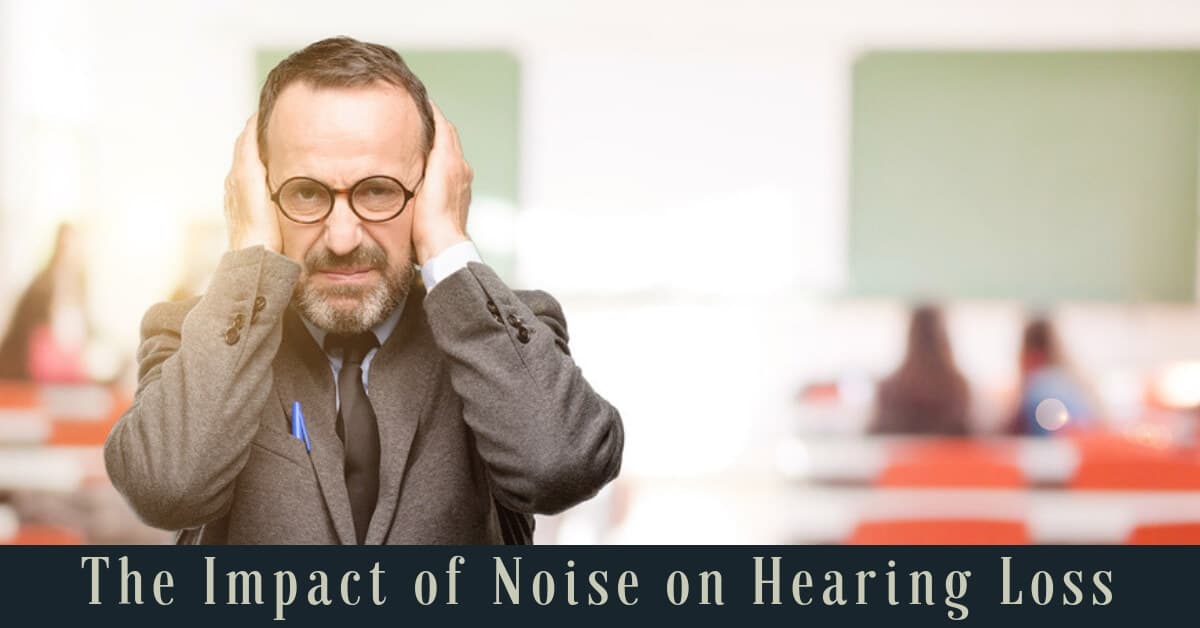
- A Step-by-Step Look at How Hearing Aids Make Sounds Sharper - May 5, 2025
- Causes of Conductive Hearing Loss? - April 27, 2025
- Can Treating Hearing Loss Reduce Stress? - April 15, 2025
Sounds are all around us. From the of birds chirping in the morning to the wind whispering through the trees, these types of sounds are soothing and relaxing in our everyday lives. Noise, on the other hand, can be quite detrimental to our hearing ability if we are unaware if its impacts. The National Institute on Deafness and Other communication Disorders (NIDCD) shows that 10 million Americans have already suffered irreversible hearing damage from noise, with 30 to 50 million more being exposed to dangerous noise levels every day. How do we protect ourselves from these everyday sounds?
Understanding Noise-Induced Hearing Loss
Noise-induced hearing loss (NIHL) is a type of hearing loss which occurs when we are exposed to extremely loud sounds, either through a single burst of unsafe sound or by loud noises over an extended period of time. One can face temporary or permanent hearing loss depending on the noise level and its duration. The impacts of extremely loud noises damage the sensitive structures in our inner ear which leads to NIHL.
Noise-induced hearing loss may not be easily identifiable in certain instances as signs of hearing loss may be gradual and slow as time goes on. If you notice yourself having to ask people repeat themselves in conversation either in noisy places or over the phone, these may be signs of NIHL. Despite the fact that exposure to noise is the second leading cause behind hearing loss, the good news that it is also quite preventable.
Volume and Duration Matter
Decibels, which are used to measure the volume of sounds, help us identify which sounds are within safe volumes and which may damage our hearing. According to audiologist Natalie Gibbs, 85 decibels (dB) is the threshold. Once sounds reach 85dB or above, there is a potential that the noise could cause permanent damage to your hearing. The longer the exposure for sounds above this level, the more damage occurs.
It may come as a surprise to many the everyday noises are at or above 85dB. Household items such as vacuum cleaners, lawn mowers, hair dryers are at around 85-90dB. Power tools, food processors, sounds from trucks or motorcycles could reach up to 100dB. Continuous exposure to these noises over 85 decibels could be damaging to our hearing ability.
How long is too long you might ask? According to the Occupational Safety and Health Administration (OSHA) regulations, one can be exposed to constant levels at 85dB for up to 8 hours before it becomes damaging to our hearing ability. If you’re exposed constantly to noises at 90dB, its only 4 hours. Anything above 120dB, such as a gunshot or fireworks, could be enough to cause permanent hearing loss. If you are exposed to these noises for prolonged durations of time, you may be at risk of noise-induced hearing loss. Knowing and taking preventative measures could help mitigate this type of hearing loss.
Protect Yourself and Loved Ones from Hearing Loss
Self-assessment and awareness of what types of sounds you are exposed to in your everyday life is a good starting point in being able to not only identify if you may be impact noise-induced hearing loss, but also a key step in preventing it. Learn more to see what everyday items are louder than 85dB and identify how frequent you hear these noises and for how long. If you’re constantly exposed to such noises on a regular basis for prolonged periods of time, you need to take the necessary steps to protect your hearing.
Start by turning down the volume on your TV or your music device. We often turn up the volume higher and higher without realizing that it could contribute to hearing loss. If you are living in an urban center with lots of everyday noises, bring ear protection to protect yourself. If you’re attending a concert or sporting event, make sure to always bring earplugs. Try to avoid sitting near loud sounds if you’re out at a restaurant or cafe.
Visit Us at Hearing Aid Specialists of the Central Coast
If you feel that you may be experiencing noise-induced hearing loss, schedule an appointment for a hearing test with us at Hearing Aid Specialists of the Central Coast. On average, people take 7 years to treat their hearing loss, time in which they could be learning about how to prevent further hearing loss. We’ll be able to determine your level of hearing loss, provide important tips to protect your hearing, and work with you in finding solutions and treatment that meet your specific needs!
